Publications
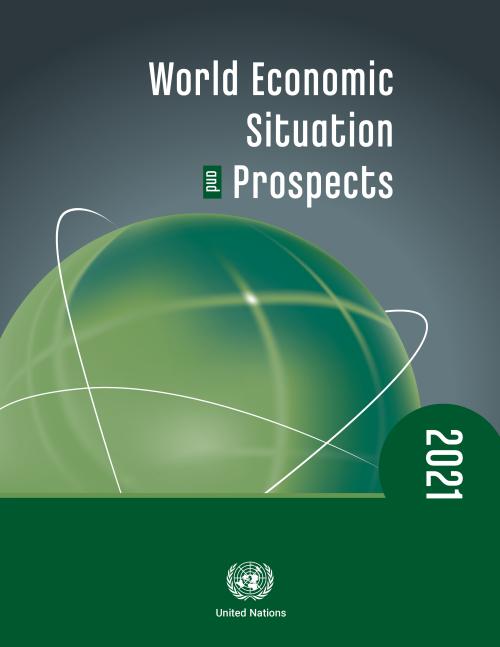
The United Nations today warned that the devastating socio-economic impact of the COVID-19 pandemic will be felt for years to come unless smart investments in economic, societal and climate resilience ensure a robust and sustainable recovery of the global economy.
In 2020, the world economy shrank by 4.3 per cent, over two and half times more than during the global financial crisis of 2009. The modest recovery of 4.7 per cent expected in 2021 would barely offset the losses of 2020, says the latest World Economic Situation and Prospects.
The report underscores that sustained recovery from the pandemic will depend not only on the size of the stimulus measures, and the…
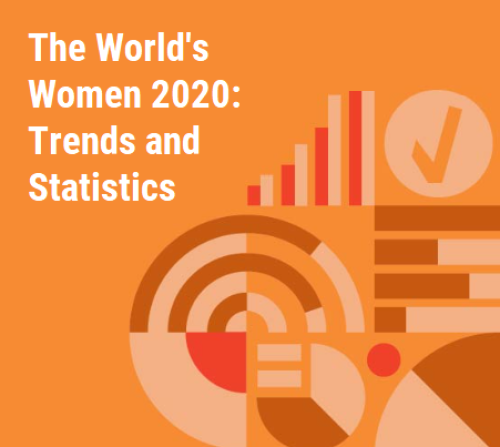
Less than 50% of working-age women are in the labour market, a figure that has barely changed over the last quarter of a century, according to a new UN report launched today. Unpaid domestic and care work falls disproportionately on women, restraining their economic potential as the COVID-19 pandemic additionally affects women’s jobs and livelihoods, the report warns.
The World’s Women 2020: Trends and Statistics compiles 100 data stories that provide a snapshot of the state of gender equality worldwide. Presented on an interactive portal, the report analyses gender equality in six critical areas: population and families; health; education; economic empowerment and…
The new report examines five megatrends: climate change; demographic shifts, particularly population ageing; urbanization; the emergence of digital technologies; and inequalities –that are affecting economic, social and environmental outcomes. Efforts to reverse or redirect these trends must be reinforced to ensure that we achieve the full measure of the 2030 Agenda, and set the stage for an inclusive, sustainable and equitable future during the next 75 years.
All trends are the result of human activity, and as such, they can be shaped by human decisions and policy choices. By making the right choices today, without further delay, it is not too late to shape the major trends of…
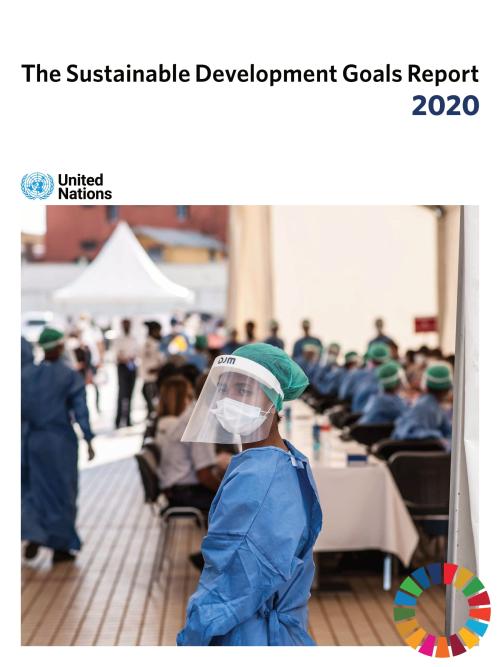
The 15-year global effort to improve the lives of people everywhere through the achievement of the 17 Sustainable Development Goals (SDGs) by 2030 was already off track by the end of 2019. And in only a short period of time, the COVID-19 pandemic has unleashed an unprecedented crisis, causing further disruption to SDG progress, with the world’s poorest and most vulnerable affected the most.
According to the Sustainable Development Goals Report 2020, released by the UN Department of Economic and Social Affairs, the world had been making progress—although uneven and insufficient to meet the Goals — in areas such as improving maternal and child health, expanding access to…
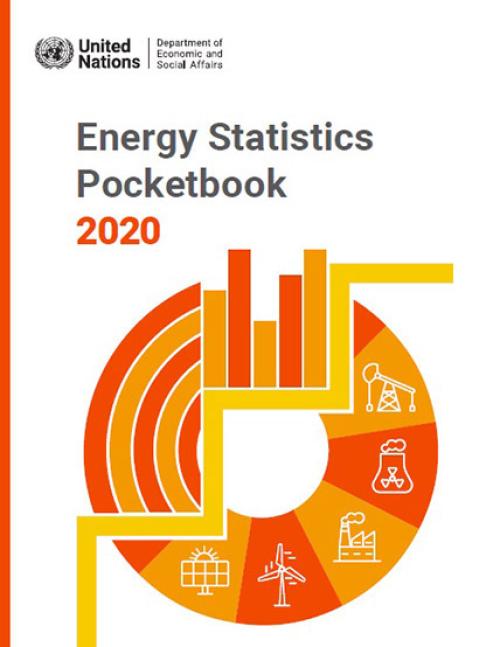
The Energy Statistics Pocketbook highlights the availability of data on various aspects of energy production, transformation and use and its linkages to other key statistics. It uses visual representations of key energy indicators to facilitate the understanding of the current state and developments in the energy sector. Energy is central to the achievement of the 2030 Agenda for Sustainable Development and the Paris Agreement on climate change, and sound energy statistics are the basis for the reliable measurement of progress, thereby assisting the formulation of policy measures to achieve international and national sustainable development goals.
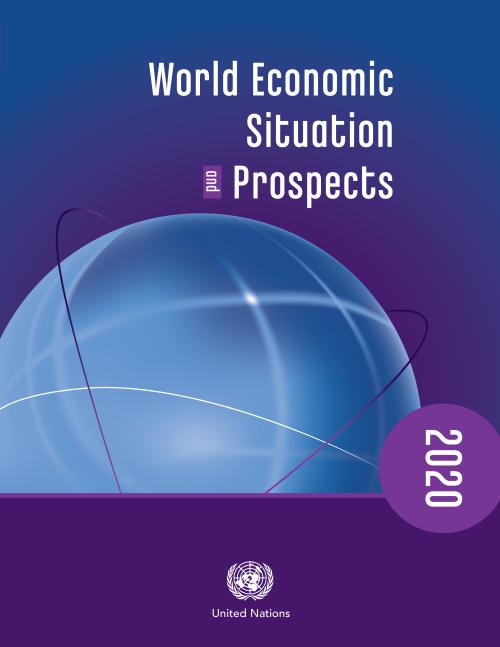
Against the backdrop of a devastating pandemic, the global economy is projected to contract sharply by 3.2 per cent this year, according to the United Nations World Economic Situation and Prospects (WESP) mid-2020 report.
The global economy is expected to lose nearly $8.5 trillion in output over the next two years due to the COVID-19 pandemic, wiping out nearly all gains of the previous four years. The sharp economic contraction, which marks the sharpest contraction since the Great Depression in the 1930s, comes on top of anaemic economic forecasts of only 2.1 percent at the start of the year.
The report estimates that GDP growth in developed economies is expected to…
Impacted by prolonged trade disputes, the global economy suffered its lowest growth in a decade, slipping to 2.3 per cent in 2019. The world, however, could see a slight uptick in economic activity in 2020 if risks are kept at bay, according to the United Nations World Economic Situation and Prospects (WESP) 2020.
The Report states that growth of 2.5 per cent in 2020 is possible, but a flareup of trade tensions, financial turmoil, or an escalation of geopolitical tensions could derail a recovery. In a downside scenario, global growth would slow to just 1.8 per cent this year. A prolonged weakness in global economic activity may cause significant setbacks for sustainable…
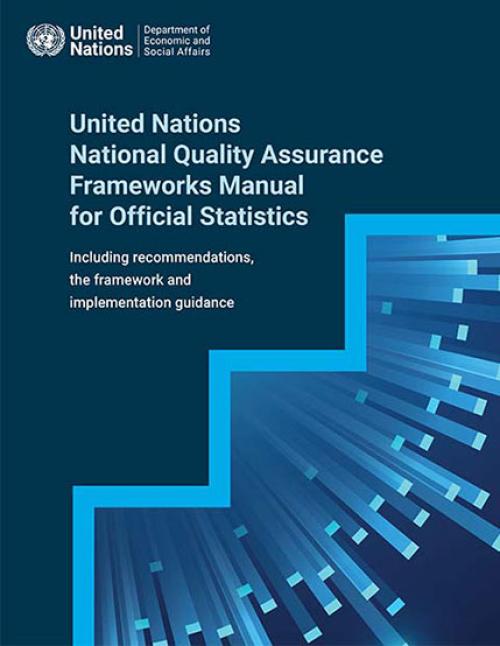
The United Nations National Quality Assurance Frameworks Manual for Official Statistics (UN NQAF Manual) provides recommendations on quality assurance, a UN quality assurance framework, and guidance for the implementation of a national quality assurance framework. The Manual aims at addressing quality assurance in different circumstances and situations, hereby supporting countries in safeguarding the role of official statistics as trusted source of information. The Manual is directed at assuring the quality of official statistics throughout the entire national statistical system but also provides guidance for engagement with entities that are outside of the national statistical system…
The impacts of climate change and increasing inequality across and within countries are undermining progress on the sustainable development agenda, threatening to reverse many of the gains made over the last decades that have improved people’s lives, warns the 2019 report on the Sustainable Development Goals.
Launched during the UN High-level Political Forum on Sustainable Development, a critical annual stocktaking event, the report, based on the latest available data, remains the cornerstone for measuring progress and identifying gaps in the implementation of all 17 Sustainable Development Goals.
Four years since the adoption of the Sustainable Development Goals --…
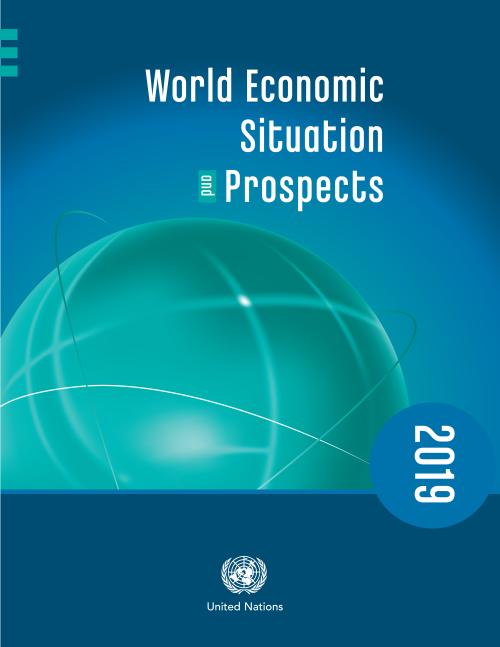
The global economy is experiencing a broad-based growth slowdown amid unresolved trade tensions, high international policy uncertainty, and softening business confidence, according to the United Nations World Economic Situation and Prospects (WESP) mid-2019 report.
The forecast for weaker global growth casts a shadow over efforts to implement the 2030 Agenda for Sustainable Development, which has set universal goals for eliminating poverty, promoting prosperity and social well-being while protecting the environment. Weaker economic growth puts at risk essential investments in areas such as education, health, climate change adaptation and sustainable infrastructure.
…
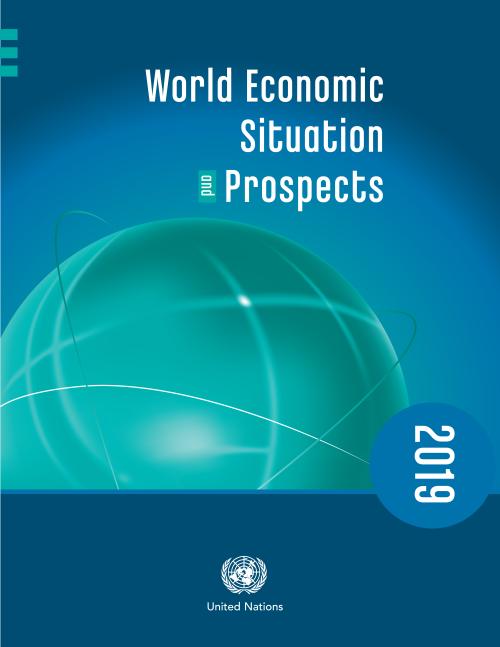
The global economy will continue to grow at a steady pace of around 3 per cent in 2019 and 2020 amid signs that global growth has peaked. However, a worrisome combination of development challenges could further undermine growth, according to the United Nations World Economic Situation and Prospects (WESP) 2019.
UN Secretary-General António Guterres cautioned “While global economic indicators remain largely favourable, they do not tell the whole story.” He said the World Economic Situation and Prospects 2019 “raises concerns over the sustainability of global economic growth in the face of rising financial, social and environmental challenges.”
Global growth is expected to…
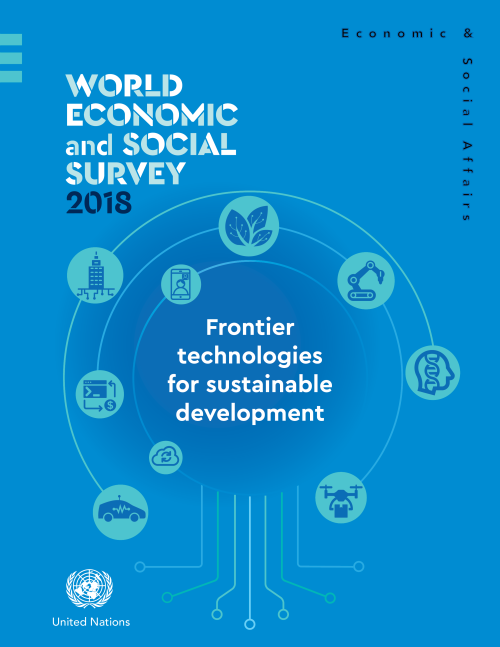
New frontier technologies — everything from renewable energy technologies to biodegradable plastics, artificial intelligence and electric vehicles — hold immense potential to improve people’s lives and significantly accelerate efforts to achieve the Sustainable Development Goals and address climate change. But without appropriate policies, they can also drive greater inequality and increase social dislocations.
The World Economic and Social Survey 2018 produced by UN DESA found that renewable energy technologies and efficient energy storage systems are already enhancing environmental sustainability, allowing countries to “leapfrog” over existing technological solutions. New…
 Welcome to the United Nations
Welcome to the United Nations